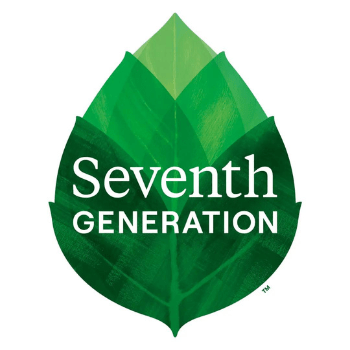17 Green Companies That Are Good For You and The Environment
by : Nikola Gemeš | Publication Date: August 10, 2023
A green business model is good for both the company and the planet. From 100% biodegradable products to carbon offsets, these companies are the champs of sustainable business practices.

It’s Friday morning, and you’re leisurely cruising to work. You like the taste of the first cup of coffee in the morning, so you grab one at your nearest drive-thru — not even realizing that the sleeve that prevents your hand from getting burned is probably made of 100% recyclable or compostable material.
Businesses around the world are following a global trend and consumers demand to go green. An international survey by Futerra reveals that 88% of customers value brands that help them be more environmentally friendly and ethical in their daily lives.
Let’s meet companies that are world champions of sustainability.
The 17 Best Green Companies
1. Nike
Nike is an American multinational corporation that manufactures and sells footwear, apparel, sports equipment, and accessories. Apart from showcasing the importance of green initiatives through advertising, Nike is a leader in putting green ideas into practice.
Nike is aggressively pursuing their line of sustainable products that are made using environmentally-friendly materials like recycled polyester. They are also using renewable energy sources in manufacturing.
Nike’s “Move to Zero” initiative is the company’s response to climate challenges. It includes commitments like eliminating single-use plastics on Nike’s campuses and initiating dialogue among the global design community through their Circular Design concept.
2. Apple
When thinking about environmentally-responsible companies, tech giants such as Apple don’t often pop into the mind.
However, the company based in Cupertino, CA focuses on three aspects of sustainability — minimizing the impact on climate, preserving natural resources, and using safer materials in its products and work environment.
As a part of that commitment, Apple has created several wind and solar farms that power their data centers, retail stores, and corporate offices.
The corporation is also actively preserving materials through increased production efficiency, renewable resources, and designing durable products that last longer.
3. Patagonia
If you’re an outdoorsy type, you must’ve heard of Patagonia, one of the world’s most successful retailers of activewear. Since outdoorsy folks are usually very eco-conscious, it should surprise that Patagonia’s corporate philosophy is green to the core.
They have invested in repair centers around the world to increase the longevity of their products and lower the carbon footprint that goes with manufacturing new items.
Although Patagonia’s corporate philosophy is “100% For the Planet," they are still not 100% sustainable. But, they are honest about it. For example, they admit to still using fossil fuels to produce rainproof shells for their coats.
4. Starbucks
When grabbing a coffee-to-go, many people choose disposable coffee cups that contain 5% polyurethane plastic, which makes recycling difficult and infeasible.
As the world’s largest coffeehouse chain and a symbol of the United States’ second wave of coffee culture, Starbucks is developing an eco-friendly cup that should double the recycled content and reusability by 2020.
This green company is also known for buying 100% ethically-sourced coffee and making coffee the first globally sustainable agricultural product. Starbucks has also pledged to provide 100 million healthy coffee trees to farmers whose plantations have suffered because of disease and climate change.
Not only is it good for us as a society but it’s good for them for a variety of reasons. Various sustainability efforts can save businesses money, make them more efficient and can improve the quality of the work environment.
Alfred Marcus, Strategic Management and Entrepreneurship Professor, University of Minnesota
5. IKEA
Although this household brand is better known for its ready-to-assemble furniture and homeware, IKEA is also one of the leaders in sustainable industry practices.
The Swedish company sources almost 50% of its wood from sustainably harvested forests and 100% of its cotton from growers that meet the Better Cotton standards. These standards propose reduced energy and water use, as well as regulate the use of fertilizers and pesticides.
IKEA uses more than 700,000 solar panels that power its stores around the world and has announced its goal to be powered by 100% renewable energy.
6. Seventh Generation
Seventh Generation is a company that makes personal care and cleaning products that started its green journey in 1988. From the moment it was founded, the company’s mission became “to transform the world into a healthy, sustainable & equitable place for the next seven generations.”
Realizing that packaging used for selling and shipping products is a huge source of waste, Seventh Generation uses a packaging solution that is just as environmentally friendly as their plant-based products made of sustainably sourced ingredients.
Just like Patagonia and some other companies on this list, Seventh Generation plans to become a zero-waste company by 2025.
7. A Good Company
Not all e-commerce companies are environmentally sustainable, but A Good Company is definitely throwing an eco-friendly gauntlet to Amazon.
For A Good Company, being green means more than just doing no harm to the planet. Its founder Anders Ankarlid is determined to do everything he can to fight climate change, which reflects in every product his company creates.
Their lineup includes products like the world’s first climate-positive notebook made with stone paper and luxury pens made of melted down illegal firearms from El Salvador.
The best thing — every decision about the raw materials used and all the steps of the manufacturing processes are shared with customers.
8. Honda
For many consumers, cars and sustainability don’t really go together, but Honda is ready to challenge the bad rep of the auto industry.
In 2004, Honda began its Tree Fund Program to curb growing carbon emissions. Since its start, more than 700,000 trees were planted within the program across the New Zealand landscape.
One of its goals is to reduce CO2 emissions by 30% for motorcycles, automobiles, and power products, compared with those manufactured between 2000-2020.
Honda has entered a long-term virtual power purchase agreement (PPA) for renewable wind and solar, which will cover more than 60% of the company’s energy needs in North America.
9. Disney
Just as in the animation and film industry, Disney is a giant when it comes to energy-efficiency. The company uses zero net direct greenhouse gas policies in all of its facilities. Disney is also actively working to reduce electrical and water use, which reduces indirect greenhouse emissions.
Disney is also a leader in environmental sustainability policies like:
- Zero waste (nothing goes to the landfill)
- Net positive environmental impact (giving more to the environment than taking from it)
Just as in the animation and film industry, Disney is a giant when it comes to energy-efficiency. The company uses zero net direct greenhouse gas policies in all of its facilities. Disney is also actively working to reduce electrical and water use, which reduces indirect greenhouse emissions.
The company also commits to produce or purchase 100% zero-carbon electricity for its global operations by 2030.
10. New Belgium Brewing
New Belgium Brewing is among the largest craft beer companies in the US and an advocate of environmental protection initiatives since its founding in 1991.
Based in Fort Collins, Colorado, the brewery is determined to work only with sustainable vendors and holds a Platinum-certified Zero Waste Business certificate, which means 99.9% of their waste is disposed of through a recycling program.
In an effort to offset the impact of greenhouse gas emissions in the brewing industry, the company aims to lower its footprint through energy conservation, producing energy onsite, and introducing an internal energy tax.
11. Pela
This company started out in 2010 when its founder Jeremy Lang realized the impact of plastic on the oceans. Pela has created the world’s first 100% compostable phone case and set a goal to prevent 1 billion pounds of plastic from being produced in the next 5 years.
Phone cases by Pela are made from 45% plant-based materials.
In 2019, the company neutralized its entire carbon footprint by purchasing carbon credits and now proudly holds the Climate Neutral Certificate.
Pela is also a fellow 1% for the Planet member, which means at least 1% of its revenue goes to environmental causes.
12. Johnson & Johnson
For more than 20 years, this manufacturer of personal care and beauty products has been a leader in environmental sustainability.
In 2010, the company patented the Global Aquatic Ingredient Assessment Tool (GAIA) that helps it better understand and control the environmental impact of its consumer products.
Johnson & Johnson is also one of the first companies to remove plastic microbeads from their cosmetic and personal care products.
Their goal is to use 100% recyclable, reusable, or compostable packaging, and certified post-consumer and pulp-based packaging by 2025.
13. Imperfect Foods
Based in San Francisco, this eco-friendly startup is on a mission to reduce food waste and to make fresh produce more affordable and accessible.
They purchase fruits and vegetables that would otherwise go to waste directly from farms and deliver them to customers’ doorstep for an average of 30% less than grocery store prices.
The produce they sell is by no means spoiled or dangerous to eat. It’s just cosmetically imperfect.
Apart from helping its partners in the food industry reduce waste, Imperfect Foods aims to establish an eco-friendly environment and supply chain in each city it operates.
If you think about the question of how do we hedge against climate change risk, it’s natural to think the easiest thing to do is to go long green and short brown companies.
Stefano Giglio, Professor of Finance at Yale
14. Salesforce
A cloud-based software company, Salesforce provides customer relationship management services and sells business applications focused on customer service, marketing automation, and analytics.
In 2018, the company announced the Step Up Declaration challenge that focused on using new technologies to reduce greenhouse gas emissions across economic sectors.
Salesforce made its one environmental commitment and announced its most ambitious renewable energy agreement to date, hoping to achieve 100% renewable power by 2022.
Some of the company goals include:
- Partnering with eco-friendly suppliers
- Adopting green building practices
- Integrating environmental innovation at their headquarters
15. Native Shoes
Leather shoes are dependent on carbon-intensive animal farming while most synthetic shoes are made of harmful materials that can’t be recycled or composted.
Native Shoes has decided to change the odds by using unique manufacturing techniques and vegan materials. They also collect old pairs of Native Shoes to give them new life as insulation and playground flooring. This also reduces manufacturing waste.
Their limited edition Plant Shoe is advertised as a 100% biodegradable shoe made of all-natural materials that can be composted after use.
16. Numi Organic Tea
Every initiative from Numi Tea is sustainable root and branch. For this company using sustainable packaging, tracking CO2 emissions during the production process, and making donations to environmental profits is as important as selling first-class organic tea.
Numi Tea is also the initiator of OSC2 (One Step Closer to an Organic Sustainable Community), which is a group of CEOs and business leaders from sustainable companies in the natural products industry.
The group is dedicated to improving not only their own sustainable products but spreading environmentally-friendly practices across all industries.
17. Who Gives A Crap
Who would’ve thought that the COVID-19 pandemic would put toilet paper in such demand? As a household staple that people use in abundance and throw away immediately, it’s only right that toilet paper is safe for the environment.
Who Gives A Crap is an Australian company that produces nature-friendly toilet paper. Advertised as “good for your bum and great for the world”, their paper is 100% plastic-free and you get to choose between 100% recycled paper or 100% recycled bamboo variety.
The company donates 50% of its profits to help build toilets for impoverished communities around the world.
And who says the “take-make-waste” model is a bad thing?
FAQ
What does it mean to have a green business?
To have a green business means that some or all aspects of the business are based on eco-friendly principles. This includes sourcing of raw materials and the supply chain, manufacturing process, packaging, but also the administration and post-consumer responsibility.
Is a green business profitable?
Yes, a green business is profitable. Sustainability policies can easily be adjusted to transform businesses into more profitable entities. A green company can make a more successful entrance into a new market and attract more investors. Green companies are also more successful at keeping pace with increasingly stricter environmental regulations.
What companies use green marketing?
Companies that use green marketing are those that highlight the environmental benefits of their products or services. Among the companies that are known for the best examples of green marketing are Patagonia, Starbucks, Nike, IKEA, and Timberland.
What are the benefits of going green for a business?
The benefits of going green for a business include many advantages, from bottom-line cost savings to unfathomed marketing opportunities. Green companies reduce waste and decrease costs while being able to apply for eco-friendly incentives and rebates. they often promote a healthier work environment and attract eco-conscious customers.
Is going green expensive for businesses?
Yes, going green can be expensive for business initially. However, the cost reductions in energy savings, paired with tax benefits can help companies mitigate the costs of going eco-friendly. Many companies succeed to cover the costs of going green through recycling or optimizing their energy and water use.
What are the problems with going green?
The problems with going green are most often related to costs. For some companies, the switch to sustainability can be expensive to the point that it doesn't offset the initial upfront costs. Transition to green materials can sometimes lead to higher costs in the production process.
How are companies going green?
Companies are going green in more than one way. The two biggest initiatives are reducing energy, which also includes switching to renewable, and reducing waste at the office and production lines. According to McKinsey & Company, 63% of companies are reducing energy consumption and 61% of them are reducing waste.
Is Tesla a green company?
No, Tesla is not a green company. Although Tesla makes electric cars that are generally better for the environment, the company does not report enough details about the production of its vehicles or sourcing of its products for people to get an idea about its sustainability.
What brands are going green?
The brands that go green make up all the companies in this list and many more. They include Nike, Honda, Johnson & Johnson, Starbucks, etc. There are also many companies that didn't make it to the list, such as Toyota, Google, McDonald’s, and United.
How is Starbucks going green?
Starbucks is going green by identifying key areas in which it can make a big impact by 2030. It includes replacing disposable with reusable packaging and investing in innovative water conservation and reforestation practices. Starbucks is also buying only 100% ethically-sourced coffee.
How do you become a green entrepreneur?
You become a green entrepreneur by implementing environmentally-friendly principles in your company. You can try to reduce environmental impact by partnering with a recycling company, switch to green energy, or develop environmentally-safe products and services.
What is a green business model?
A green business model is a business model that enables companies to align their operations with eco-friendly outcomes. It helps businesses offset their environmental impact through greenhouse gas emission policies and socially-responsible initiatives.
What is going green and why is it important?
Going green is reducing one’s environmental footprint and living a healthier lifestyle. Generally, it means wasting less natural resources, consuming less energy and water, limiting pollution and recycling, reusing, and composting waste. Going green is important for conserving the planet’s resources.
Does going green actually help the environment?
Yes, going green actually helps the environment. It reduces the amount of pollution in the soil, water, and air. By improving our energy efficiency, using renewable energy sources, recycling, and reducing waste, people can limit the number of pollutants that are released into the environment.
Final Thoughts
A green company is an umbrella term that covers different business practices, initiatives, and goals.
Some companies start out as “green” enterprises from scratch, developing eco-friendly product alternatives, or offering energy-saving services and solutions across a range of industries.
However, a company doesn't have to be in the eco-friendly industry to install solar panels, switch to low-flow plumbing, recycle its manufacturing waste, donate to environmental non-profits, or support local green initiatives.
If you can identify with green values and would like to be a part of such a company, why don’t you check our Green Jobs board for the available jobs in your area?
Find more jobs in green companies by category, by city, or by state by checking out more sustainability jobs.
Nikola Gemeš
Nikola uses his background in electrical engineering to break down complex sustainability topics for GreenCitizen's readers. He is a firm believer in environmental conservation, which he practices daily through recycling and home-grown food. He enjoys hiking, engaging in white-water sports, and collecting pocket knives.
| Thank you for Signing Up |


Category: Business & Policies, Environmental Jobs, Green Blog, Green Industry, Home Business & Policies, Most Popular, Sustainable Business
3 Comments on “17 Green Companies That Are Good For You and The Environment”
Leave a Reply Cancel reply
Services(United States)
For Businesses
Business Pickups
Data Destruction
Build Wide Pickups
Product Destruction
For Homes
Electronics Recycling Drop-off
Mail-in Recycling
Hard Disk Destruction
How to Recycle ?
Copyright © 2023 · All Rights Reserved · GreenCitizen



















Pingback: Green for Profit or Green for the Environment? – My Marketing Blog
Pingback: Patagonia Founder Donated Entire Company Worth $3 Billion To Fight Climate Change - ecodaily.org
Pingback: 8 Easy Green Ways to Make Money - Off Hour Hustle